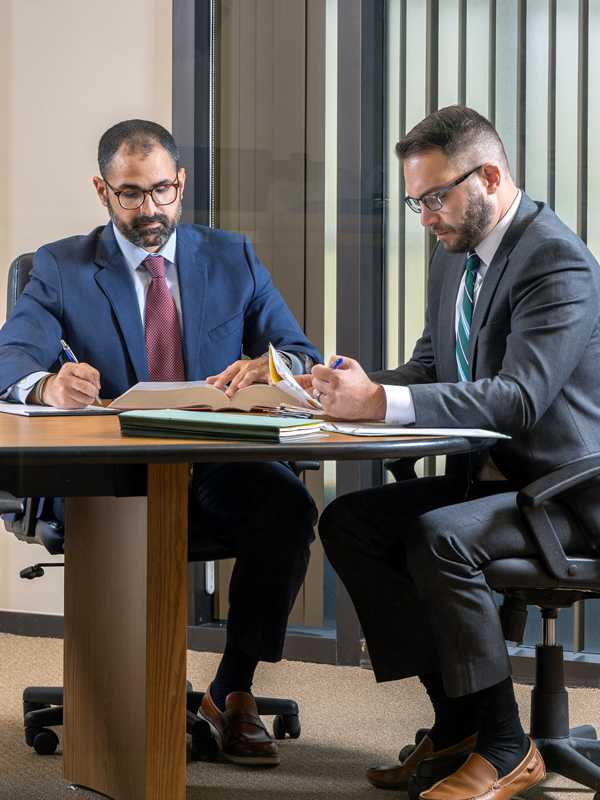- Free Consultation - Call 24/7: (603) 883-4100 What's My Case Worth?
Auto Accidents: Liability for Sending Text Messages to a Driver
The Appellate Division of the Superior Court of New Jersey made news this week with their recent opinion in the Kubert et al. v. Best et al. case. In this ground breaking decision, the court determined that a send of a text message can potentially be held liable if an accident is caused by said text. Special circumstances do apply such as that the sender knew or had special reason to believe that the recipient of the text would view the text while driving and thus be distracted. This court opininon, while the first of its kind, may have far reaching effects as other states and courts slowly update the laws to match the fast paced growth of technology. This decision will set a new precedent from which other states may follow suit.
The court decision arose out of a case involving eighteen year old Kyle Best who was texting while driving, crossed the center line and collided with David and Linda Kubert who were riding their motorcycle. The collision resulted in both David and Linda losing their left legs. The Kuberts sued Best for their damages and upon discovering that he was texting a mere 17 seconds prior to the accident, they attempted to also sue Shannon Colonna, a seventeen year old girl who was exchanging text messages with the defendant at the time of the collision.
The case against Colonna was dismissed on the grounds that there was not sufficient evidence to prove that Colanna knew that Best was driving and/or knew that he would reach a text while driving and thus become distracted. At the time of the case, the content of the text messages were lost. However, the question as to whether or not a remote participant, such as the sender of a text message, could be held liable for distracting a driver in the same way that a passenger could be held liable for distracting a driver. It was determined that the sender could be held liable but only after having met the standards that the sender knew the receiver was driving or had good reason to believe that the received would be driving and while driving would likely read the message and thereby become distracted.
Technology is fast out pacing the law and many states are struggling to update laws to match modern technology. To date, twelve states as well as Washington D.C., Puerto Rico, Guam, and the U.S. Virgin Islands have banned all drivers from using hand-held cell phones while driving. Additionally according to the GHSA, beginning in October of this year all laws will be primary enforcement. That means that an officer can cite a driver for using a hand-held cell phone while driving without any other traffic offense taking place. Thirty-seven states as well as Washington D.C. have banned all cell phone use for novice drivers. This includes Massachusetts where it is against the law for all novice drivers under the age of 18 to use a cell phone while operating a motor vehicle.
The first ban on text messaging while driving was enacted in Washington state in 2007. Almost all of the states have followed suit including Washington D.C., Puerto Rico, Guam and the U.S. Virgin Islands. Of the forty-one states banning texting while driving, all but Florida, Iowa, Nebraska and Ohio have primary enforcement. The only states which do not have laws against text messaging while driving are Arizona, Mississippi, Missouri, Montana, New Mexico, Oklahoma, South Carolina, South Dakota, and Texas.
While it is logical that a texting ban would also include email, Facebook, and internet usage on a mobile device, this has yet to be specified. There has however, been discussion as to whether or not a built-in text messaging device could prove to be equally as distracting and whether or not the manufacturer of such a device would be liable. Durkee v. C.H. Robinson Worldwidie, Inc., 765 F. Supp. 2d 742. It was determined that a manufacturer would not be held liable because it is ultimately up to the driver to avoid distraction.
As vehicles become more “plugged in” and more electronic devices are adapted into vehicles, we should expect that the laws will constantly be changing to accommodate new issues of liability which arise. Granite Law Group will work hard to keep you posted on these new developments.











